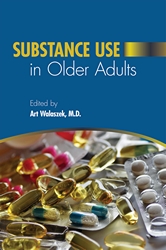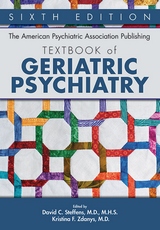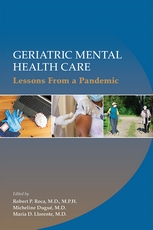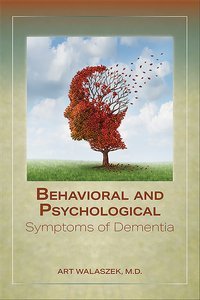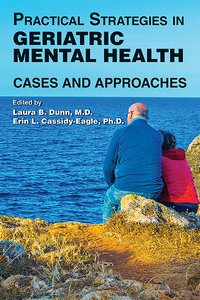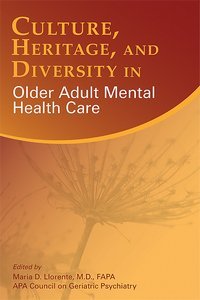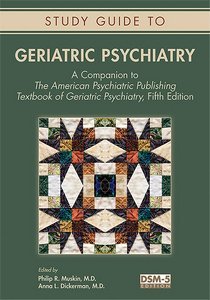DSM-5® Pocket Guide for Elder Mental Health
View Pricing
Description
Many practitioners are hesitant to treat mental health issues in older adults, believing that special expertise is required to do so effectively. DSM-5 Pocket Guide for Elder Mental Health is based on the premise that all practitioners can acquire the confidence needed to work with older patients.
Primary care practitioners, clinical psychiatrists, psychiatric nurses, psychiatric residents, and resident fellows are just some of the professionals who will benefit from memorable cases that illustrate how the presented information can quickly be applied to the reader's own patients, handy mnemonics that make complex diagnostic information easy to commit to memory, and informative tables that help readers easily locate DSM-5 information for billing purposes.
All of the information presented in this guide is grounded in real-world advice, so readers can be confident that the information provided is practical and clinically based as they learn how to
- Perform 15- and 30-minute diagnostic interviews
- Recognize the main elements of the most common mental health disorders
- Reach an initial diagnosis
- Engage patients in psychosocial, psychotherapeutic, and psychopharmacological treatment plans and work with caregivers
- Know when to refer patients for additional subspecialty mental health treatment.
With expert consensus threaded throughout, DSM-5 Pocket Guide for Elder Mental Health is the ideal companion for trainees and seasoned professionals alike, who will find the thoughtful, practical information they need to efficiently and effectively employ DSM-5 as part of comprehensive diagnostic interview and treatment planning for their older patients.
Contents
- Preface
- Acknowledgments
- Disclosures
- SECTION I: Diagnosing and Treating Older Adults
- Chapter 1. Introduction
- Chapter 2. Addressing Behavioral and Mental Health Problems in Community Settings
- Chapter 3. The Diagnostic Ds
- Chapter 4. Beyond the Diagnostic Ds
- Chapter 5. The 15-Minute Older Adult Diagnostic Interview
- Chapter 6. The 30-Minute Older Adult Diagnostic Interview
- SECTION II: Using DSM-5 With Older Adults
- Chapter 7. The DSM-5 Older Adult Diagnostic Interview
- Chapter 8. A Brief Version of DSM-5
- SECTION III: Additional Tools and Initial Treatments
- Chapter 9. A Stepwise Approach to Differential Diagnosis
- Chapter 10. The Mental Status Examination
- Chapter 11. Selected DSM-5 Assessment Measures
- Chapter 12. Rating Scales and Alternative Diagnostic Systems
- Chapter 13. Psychoeducational Interventions
- Chapter 14. Psychosocial Interventions
- Chapter 15. Psychotherapeutic Interventions
- Chapter 16. Psychopharmacological Interventions
- Chapter 17. Brain Stimulation Therapies
- Chapter 18. Mental Health Treatment Planning
- Chapter 19. Conclusion
- References
- Index
About the Authors
Sophia Wang, M.D., is Medical Director of the Older Adult Mental Health Clinic at the Richard L. Roudebush VA Medical Center and Assistant Clinical Professor at Indiana University School of Medicine in Indianapolis, Indiana.
Abraham M. Nussbaum, M.D., AACAP, is Chief Education Officer of the Denver Health Adult Inpatient Psychiatry Service and Assistant Professor in the Department of Psychiatry at the University of Colorado School of Medicine in Denver, Colorado.
Related Products
Carousel Control - items will scroll by tabbing through them, otherwise arrows can be used to scroll one item at a time

